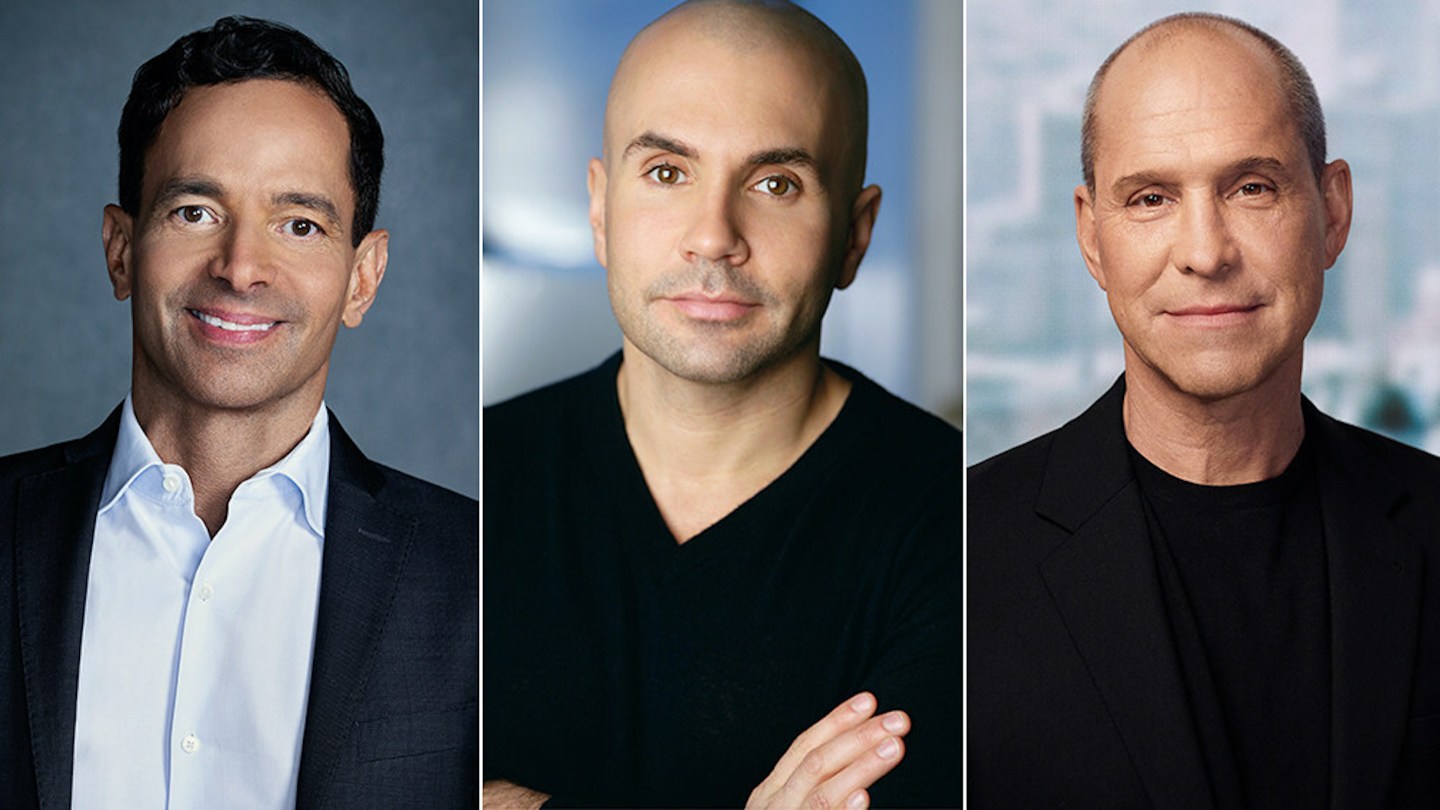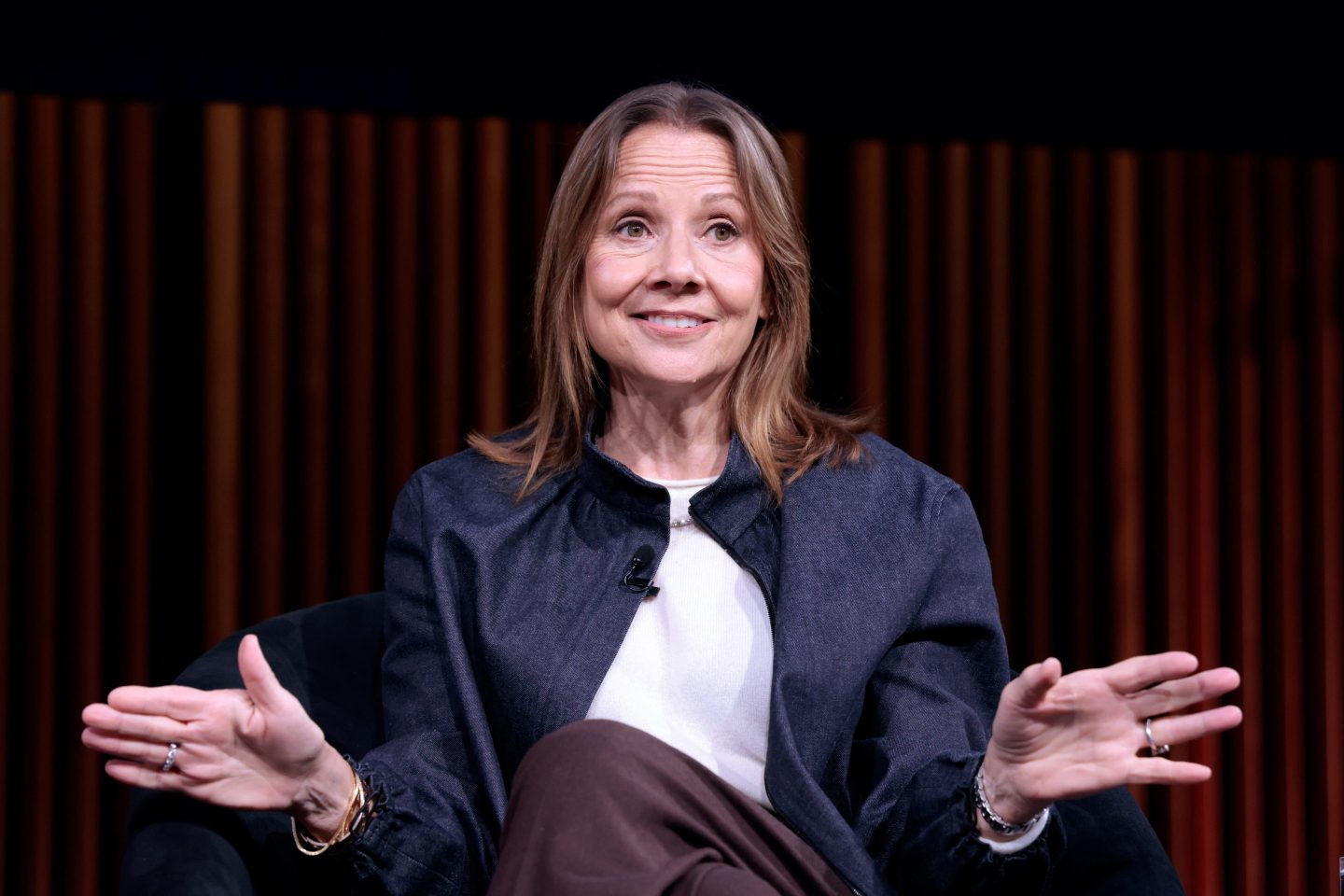Good morning. Most companies don’t deploy co-CEOs, but Paramount Global now has three. Paramount (no. 134 on the Fortune 500) announced on Monday that Bob Bakish, president and CEO, would be stepping down as CEO and from the board of directors, effective immediately. The media giant now has an “Office of the CEO” composed of three senior company executives: George Cheeks, president and CEO of CBS; Chris McCarthy, president and CEO, Showtime/MTV Entertainment Studios and Paramount Media Networks; and Brian Robbins, president and CEO of Paramount Pictures and Nickelodeon.
The CFO, Naveen Chopra, said on Paramount’s Q1 2024 earnings call on Monday that he’s “looking forward to working closely with George, Brian, and Chris,” who are “longstanding, seasoned executives, with deep expertise across their businesses, and are well positioned to guide the next chapter of Paramount.”
But can such a setup work, especially at such a large company? “Having more than one person as CEO is highly unusual and typically not a long-term solution,” according to Scott W. Simmons, co-managing partner of executive search firm Crist Kolder Associates. “People inside and outside of the company will continue to wonder, ‘Who is really in charge?’”
With employees nervous about the swift departure of Bakish, Paramount’s Office of the CEO addressed those concerns in a joint memo on Monday afternoon, Deadline reported. The message followed a company-wide email from Shari Redstone, chair of Paramount’s board of directors, announcing the news.
I contacted Paramount to ask if Chopra would be reporting to one or all three CEOs, but didn’t receive a response. So I also asked Simmons, who said in such a scenario a CFO technically would report to all three.
“That said, one of the CEOs in a co-CEO situation usually handles the management oversight of the team,” Simmons explained. An example he offered is at Copart, which provides online vehicle auctions. Until recently, the company had co-CEOs in Jay Adair and Jeff Liaw.
“While they carried co-CEO titles, Liaw was running the day-to-day management of the company and operations,” Simmons said. “It was not a surprise—nor, I doubt, was it a shock internally or externally—when Liaw was named the sole CEO of Copart a couple of months ago, and Adair was named executive chair.”
Cloud software company Workday (sponsor of CFO Daily) recently used a co-CEO model to transition to a new chief executive, Carl Eschenbach. He began his tenure in February as sole CEO after jointly serving for more than a year alongside Workday founder Aneel Bhusri, who is now executive chair.
Simmons told me he’s expecting a similar situation to play out at Paramount, which soon enough “will gravitate towards the norm of having one person as CEO.”
Bakish joined Viacom in 1997 and became CEO in 2016. A merger of Viacom and CBS made him CEO of ViacomCBS in 2019, with the company renamed Paramount Global in 2022, two years after Chopra joined as CFO.
“Not only did Bob help navigate a number of challenges, but I’m proud of all we’ve accomplished, and it’s been my privilege working together with him,” Chopra said on the earnings call.
Reports surfaced late last year that Redstone was open to selling her media empire. Sony Pictures Entertainment and Apollo Global Management may make a joint offer for Paramount. And the company has been in discussions to merge with media company Skydance, which has offered a $3 billion cash infusion that Paramount can use to pay down debt or buy back stock, according to the New York Times.
I asked Simmons whether Paramount’s Office of the CEO decision could help a potential acquisition. “That is certainly plausible,” Simmons said, “as it could be a strategy to buy time in order to let something play out.”
Sheryl Estrada
sheryl.estrada@fortune.com
María Soledad Davila Calero curated the Leaderboard and Overheard sections of today’s newsletter.
Leaderboard
Ian Whinnem was named SVP and CFO at Civista Bancshares (Nasdaq: CIVB) , a financial services holding company, effective June 3. For the past seven years, Whinnem served as SVP and director of profitability management and capital utilization for Huntington Bancshares. Before that, he worked at FirstMerit Corporation for almost two decades and held various finance roles, including director of finance.
Jordon Jones was promoted to CFO at PODS Enterprises, LLC, a moving company known for its portable pods. Jones joined PODS in 2022 as VP of global financial planning and analysis. Before that, he served as CFO of YouFit Gyms. Jones spent nearly a decade at Hertz holding several finance and sales positions.
Big Deal
As the spring 2024 graduate season is underway, Monster has released its State of the Graduate report. Among the findings is that graduates believe that employers have the upper hand in this job market. Eighty-two percent of graduates who are job hunting are confident they will receive a job offer shortly after graduating, down from 88% in 2023.
However, the graduates maintain core requirements that they are unwilling to compromise on while job hunting. For example, 59% say the most important aspect of a job is a good salary, 44% would turn down a job at a company that doesn’t offer competitive salary and benefits. And 43% would “ghost” or leave the interview process completely if the salary range for the position they applied for was not disclosed during the interview.
The findings are based on a survey of 1,000 people (500 recent graduates who graduated within the past 12 months, and 500 impending graduates set to graduate in the next 12 months).
Going deeper
How Bank Depositors Are Becoming More Alert, a new report in Wharton's business journal, highlights new research that finds depositors are quicker to shed loyalty to their banks as they look for faster transfers and fewer risks. The new Wharton paper traced the evolution of bank depositors from a “sleepy state” to becoming more alert. The 2023 regional banking crisis was a wake-up call. There's “a new portrait of depositors: depositors may become ‘flighty,’ particularly for banks with better service quality and during times of increased interest rate risk,” according to the paper.
Overheard
“Even though viewing habits have become more complex, reaching viewers doesn’t need to be—and all of this is possible because we have forged deep partnerships with major publishers across the board.”
—Kristen O’Hara, Google’s VP of agency, platforms, and client solutions, said in a presentation as part of IAB’s NewFronts Week. Media giants like NBCUniversal, Disney, and Paramount are working with Google to refine AI tools to connect advertisements with consumers.
This is the web version of CFO Daily, a newsletter on the trends and individuals shaping corporate finance. Sign up for free.













